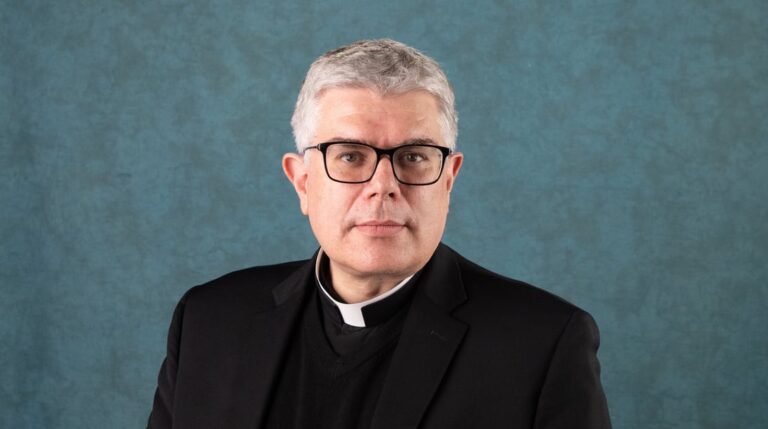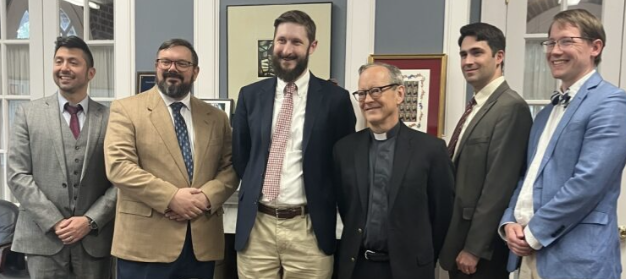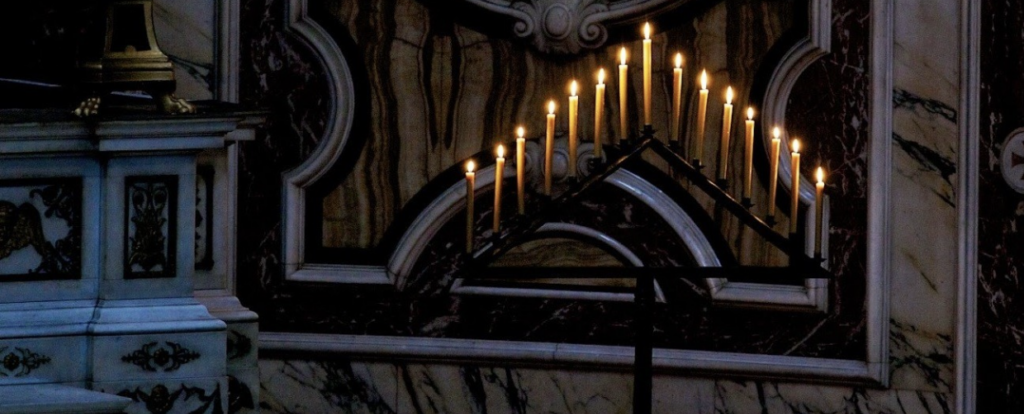Dear Friends of SJV:
As St. John Vianney Theological Seminary begins its 25th academic year, we welcomed our seminarians back to campus on August 25 for the first day of classes.
In September, human formation focuses on the virtue “Celibate Chastity”. Vatican II teaches that chastity and celibacy for the seminarian and priest is “a precious gift of God for which they should humbly pray.” We ask your prayers so that we can all grow in this beautiful virtue.
This month’s newsletter will feature Deacon Jason DiRito from the Archdiocese of Denver, who will share insights from his journey during our 15th anniversary annual camping trip. Additionally, we celebrate Dr. Elliot Polsky, who successfully defended his dissertation on August 5th. Congratulations, Dr. Polsky.
May Christ’s peace dwell deeply within us as we embrace the new academic year.
In Christ,
Fr. Angel Perez-Lopez

Aquinas the Boethian

This August, I travelled with my family back to the Center for Thomistic Studies in Houston, TX, to defend my dissertation, “Aquinas the Boethian: Interpreting Quod est and Esse in Aquinas in Light of His Sources.”
In my dissertation, I argue that the primary source for St. Thomas Aquinas’s (1225–1274) famous distinction between a created thing that is (quod est) and its being (esse) is the sixth-century Christian philosopher-statesman, Boethius (480–524), who lived as many centuries before Aquinas as Aquinas himself lived before us today.
While Boethius is a relatively minor figure in contemporary histories of philosophy, this obscurity is more a product of the shifting wheel of fortune than an accurate measure of the true worth of the contribution made by “the last of the Romans and the first of the scholastics” to the history of philosophy.
Boethius’s contribution to the Western intellectual tradition is usually reduced to his role as translator of and commentator on the core of Aristotelian logical works or to his authorship of the literary classic, the Consolation of Philosophy, translated into English by King Alfred (849–99) and Geoffrey Chaucer (1343–1400). Yet, it is often underappreciated how, in his collection of deceptively thin and densely argued theological treatises (opuscula sacra), he laid out the basic doctrines, problems, and theological methods of the whole scholastic age.
I hope my own dissertation will contribute in some way to the rediscovery of Boethius’s central place in the Catholic intellectual tradition.
Elliot Polsky, Ph.D. Assistant Professor of Pre-Theology
2025 Annual Camping Trip

We’ve now been back from our annual camping trip long enough to clean up and learn whether the red tint we acquired was sunburn or a layer of red dust from our Colorado National Monument campsite. There was certainly ample opportunity to acquire plenty of both. Triple-digit temperatures meant there was less activity around our site besides the usual fishing and hiking outings (which mercifully brought cooler air at higher altitudes).
Why would the seminary send us to go sit in the sun, four hours away, right in the middle of getting organized for the new semester? Besides my real enjoyment of our community camping trips, I find they help correct my desire to have all my questions answered and see the new schedule fleshed out so that I can get on with planning my own extra time. The heat inclined me to slow my activity and consider God’s order and authority over the wide, beautiful scenes overlooked by the Monument. This especially struck me with the celebration of Mary’s Queenship on the last day of the trip. I want to plan and order my days, my semester, and my life, but Christ has already established an order in the world and appointed his mother to reign with him. The time for working and planning will come, but for these days, it was enough to recall that my plans will be vain and my leadership an obstacle if not in harmony with Heaven’s ordering of the world.
Deacon Jason DiRito
Seminarian, Archdiocese of Denver


